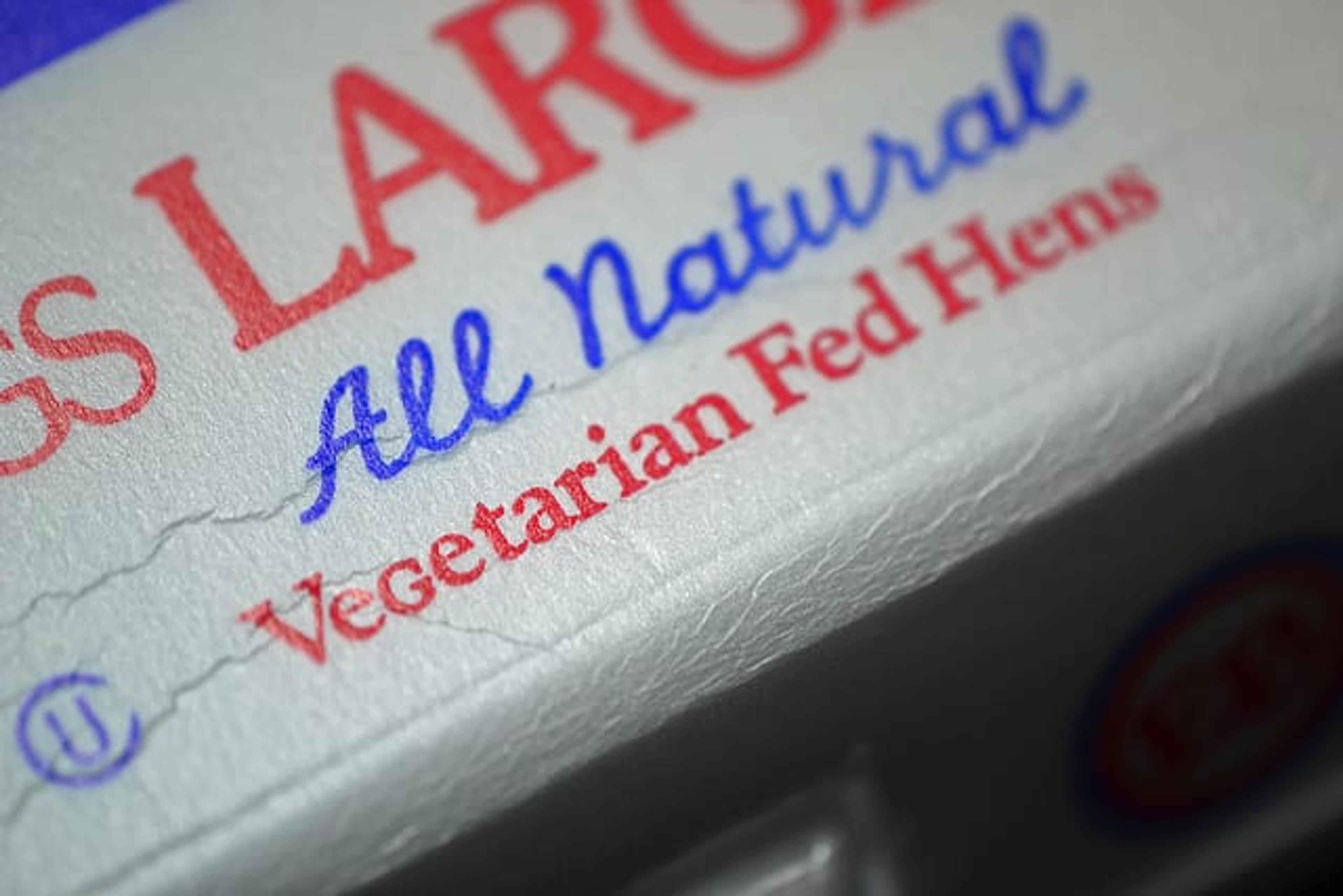A cheat sheet for navigating the egg aisle
| 3 min read

Does this scenario sound familiar? You get to the back of the grocery store, grab your milk, maybe some yogurt, and then you stand confused in front of the egg section. Although you’re determined to buy eggs, (because we’ve already told you how good they are for you!) all of the different claims and descriptions can make it feel impossible to know which carton to pick. Well, panic no more! Below is a cheat sheet to help you understand what each of those labels really mean.
Cage-free
- Hens live out of cages, typically in a barn.
- They are not required to have access to the outdoors/sunlight.
- There are no regulations on hens’ feed.
- This term is regulated by the USDA.
Certified Organic
- Hens live out of cages, typically in a barn.
- Outdoor access is required, but the amount, duration and quality of the time hens spend outside is undefined.
- Hens are fed an organic, all-vegetarian diet, free of antibiotics and pesticides.
- This term is regulated by the USDA.
Free-range
- Hens live out of cages, typically in a barn.
- There is outdoor access, but, much like certified organic, there are no requirements for the amount, duration or quality of it. (Even a small door counts as outdoor access.)
- There are no restrictions regarding what the hens eat.
- There are no USDA standards for the label “free-range.”
Certified Humane
- Hens live out of cages, typically in a barn.
- There is no required outdoor access.
- Hens must be able to perform natural behaviors such as nesting, perching and dust bathing.
- This term is not regulated by the USDA, but there is a voluntary certification and labeling program administered by Humane Farm Animal Care.
Pastured/Pasture-raised
- Hens are allowed to roam on a pasture, foraging for seeds and insects, and are kept in coops at night.
- No beak cutting is allowed (something common in the egg industry) because hens have to forage for their food.
- This label is not regulated so any producer can stick this label on their eggs. Do some research to make sure the eggs you’re buying are actually pasture-raised.
- According to Local Harvest, pasture-raised eggs have 10 percent less fat, 40 percent more vitamin A, and 34 percent less cholesterol than eggs obtained from factory farms.
Other terms you may see:
Pasteurized: This means that eggs are placed in warm water to kill potentially harmful bacteria like Salmonella. These eggs can come in three forms: out of the shell in cartons, in powdered form or as whole eggs in the shell.
Vegetarian: This label requires that the hens’ feed does not contain animal byproducts. This label is not regulated though, so you’re just taking the manufacturer’s word for it.
Vegetarian: This label requires that the hens’ feed does not contain animal byproducts. This label is not regulated though, so you’re just taking the manufacturer’s word for it.
Omega-3 enriched: This refers only to the chickens’ feed, and it means hens are fed fish oil, flax or rapeseed to enrich their eggs with omega-3 fatty acids. However, this label is not regulated so there is no way of knowing the amount in each egg.
Natural: This term simply means that nothing was added to the egg, but all eggs are natural. It does not indicate how the hen was raised, the type of feed or the use of antibiotics.
Not sure where to get fresh eggs? Use this directory to find eggs near you. Interested in learning more about what egg labels really mean? Check out this cool, short film!
This blog post is part of #HealthyMe, a personalized web experience based on your health and wellness goals. To sign up today, visit https://www.ahealthiermichigan.org/healthyme.
Photo credit: MTSOfan





